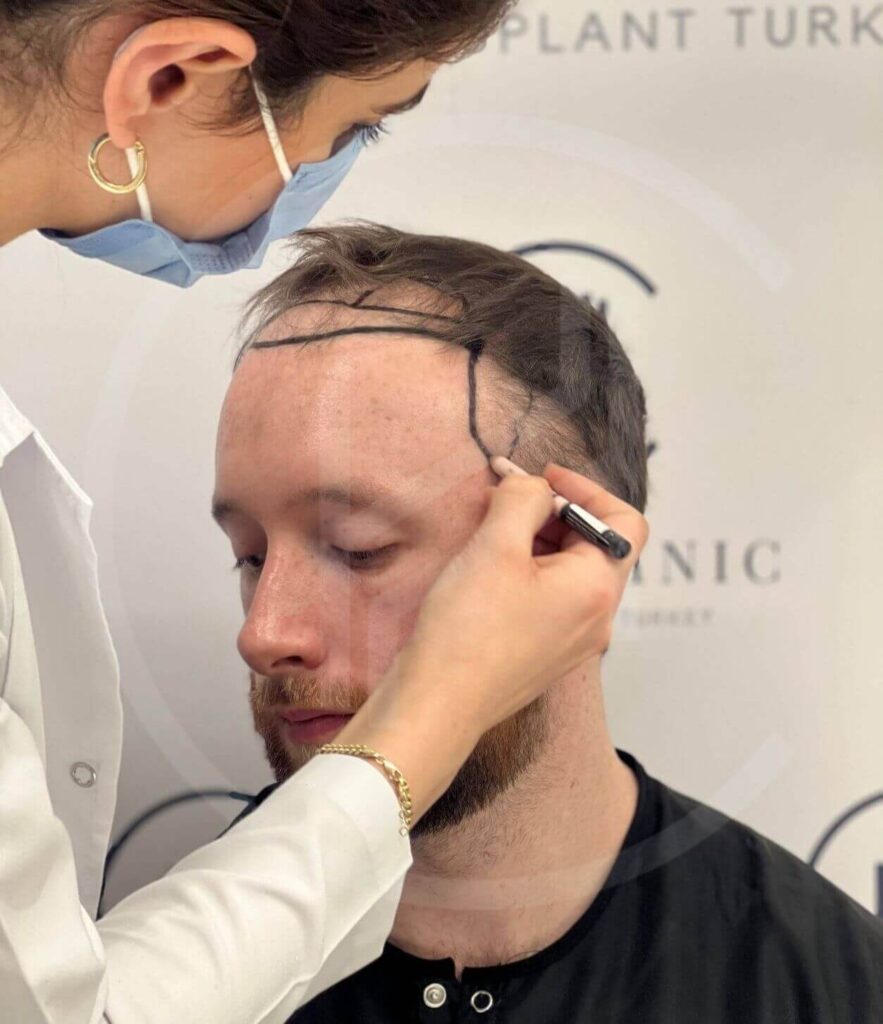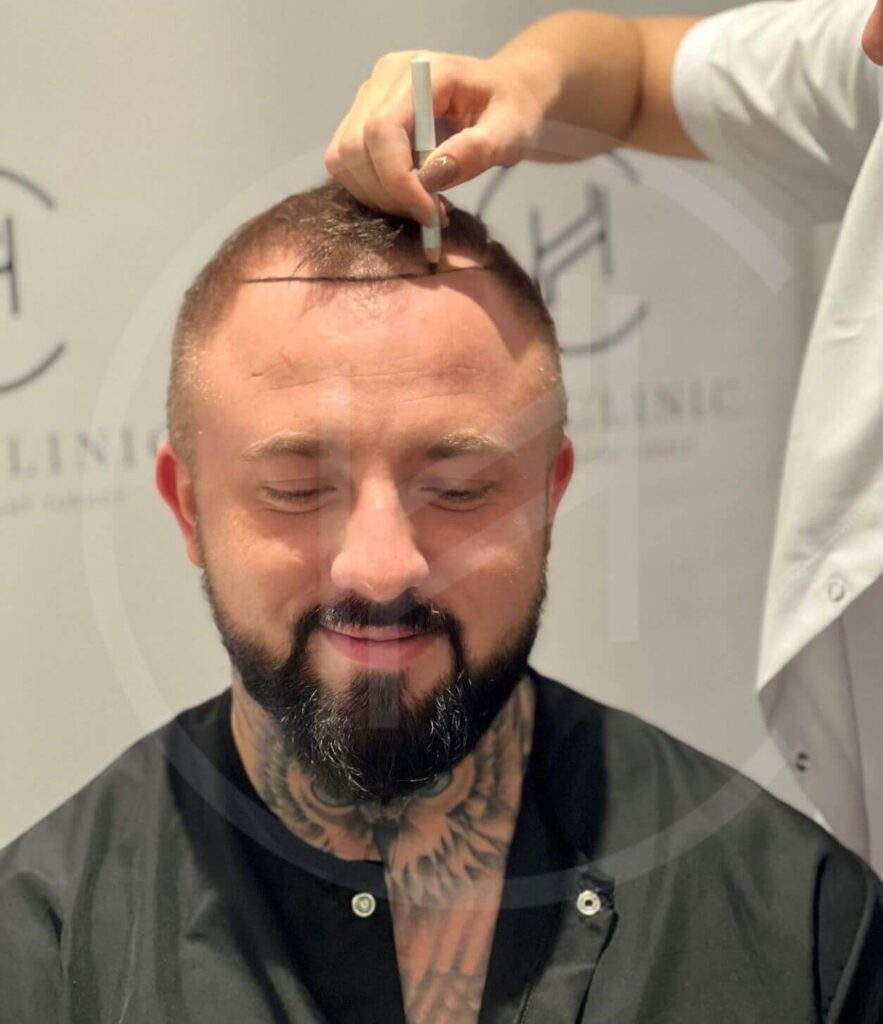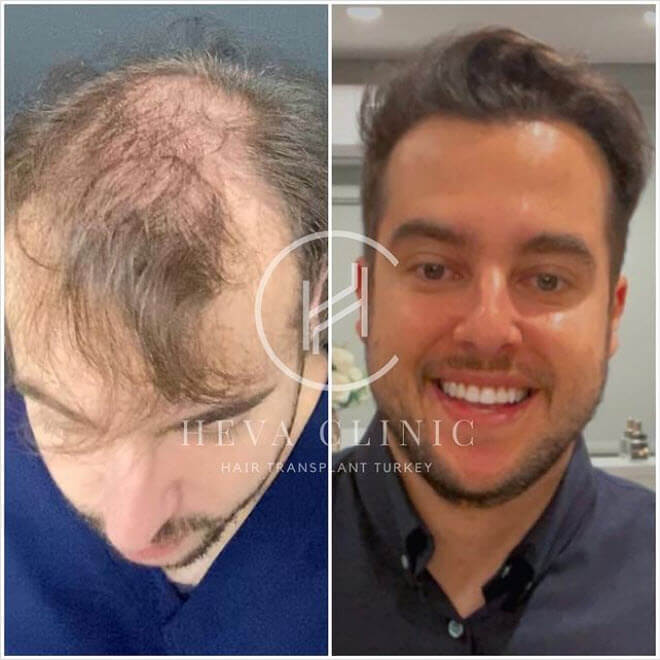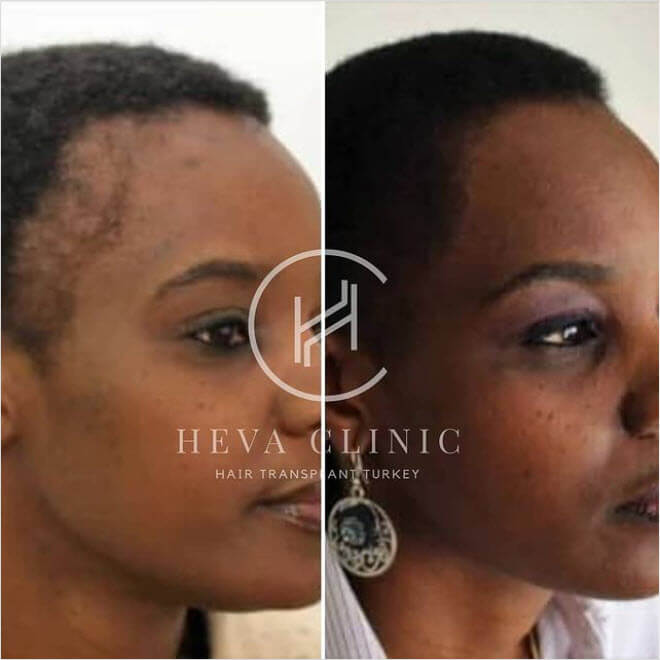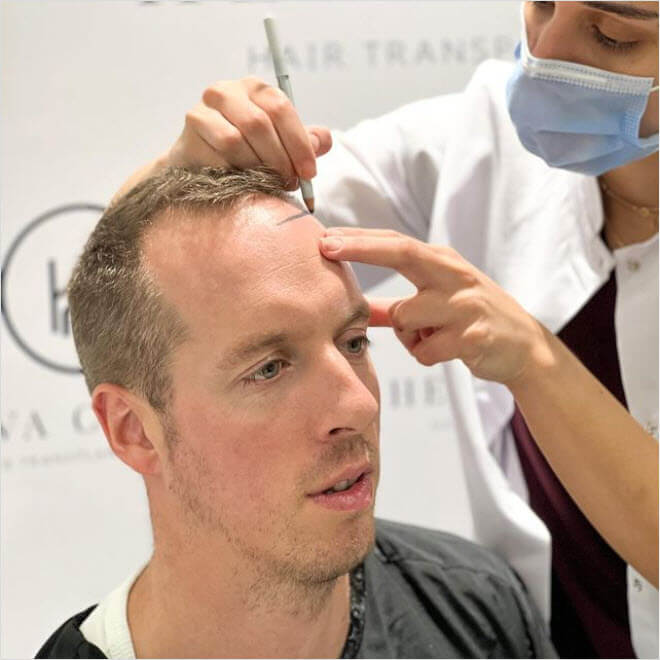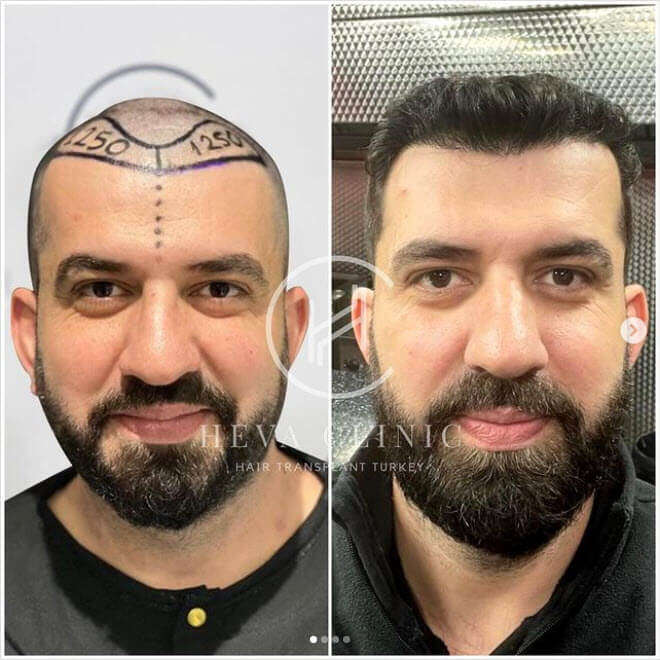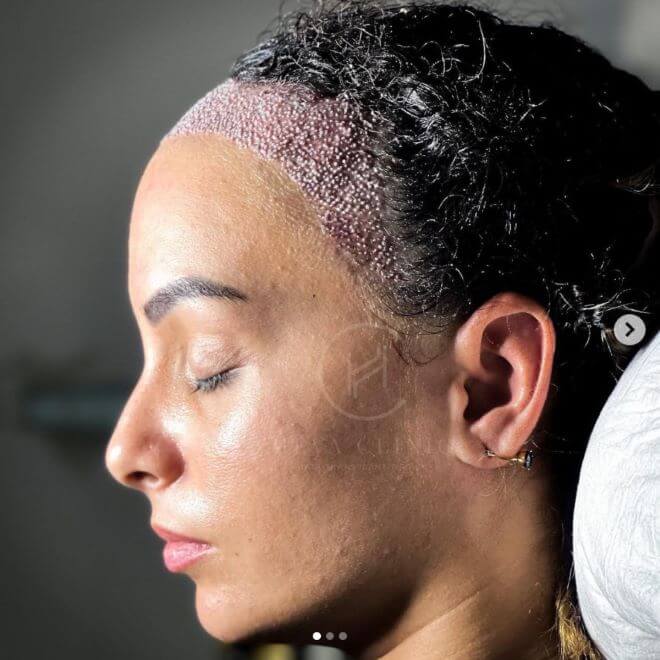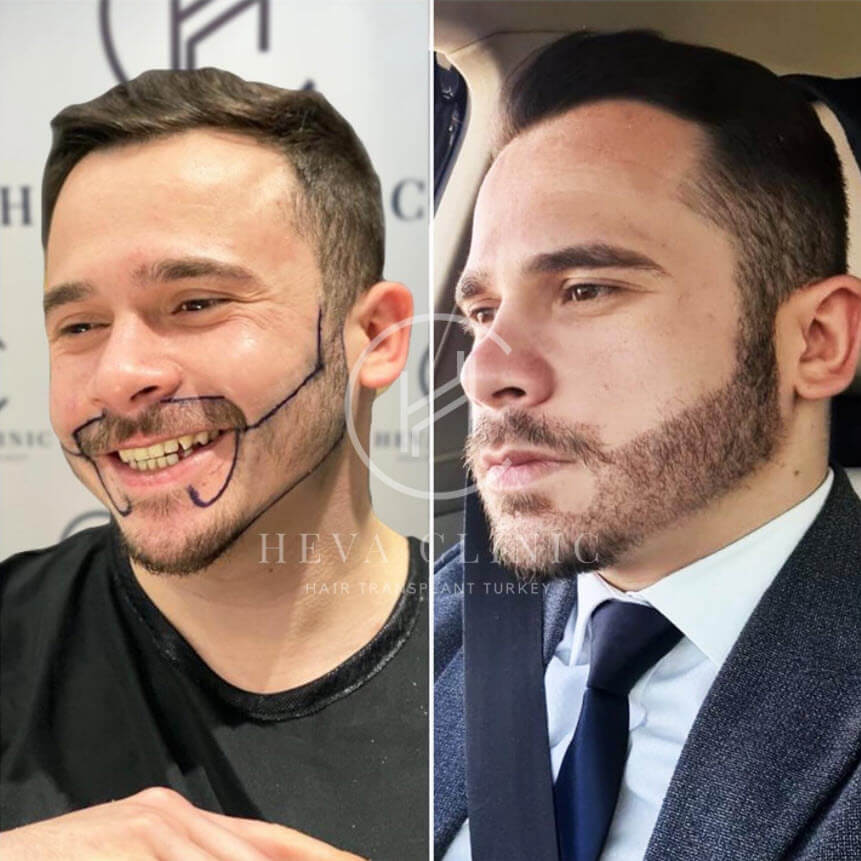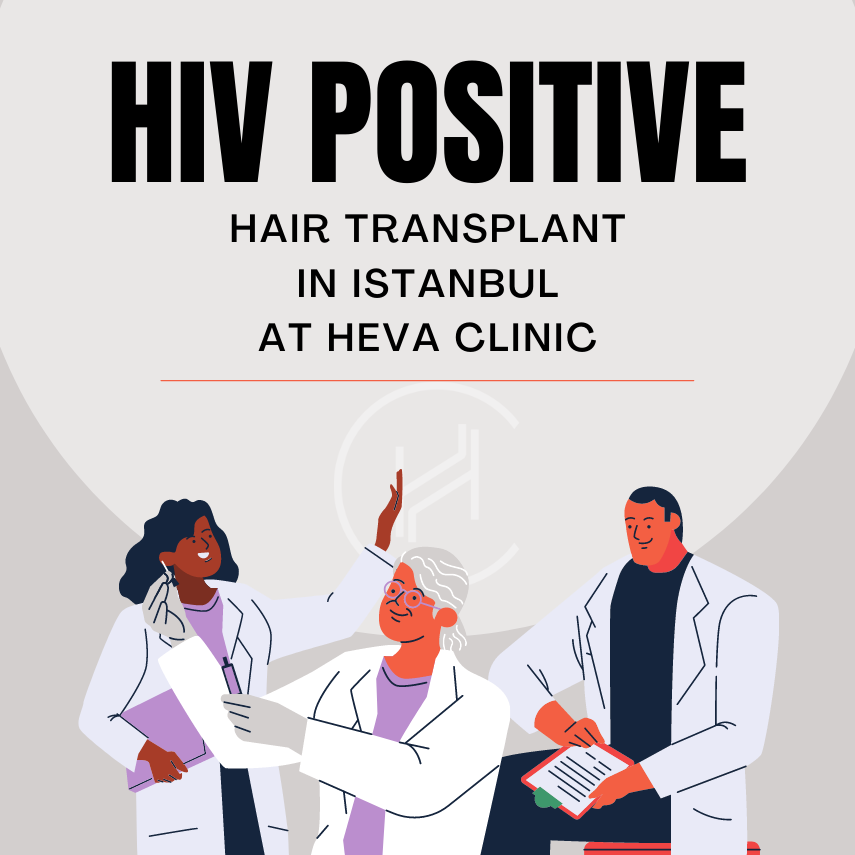
A lot of people are suffering from hair loss related to diseases, ageing, hormonal imbalances, or side effects of some medications. People with HIV may suffer from a viral infection that attacks the immune system and interferes with its functions which can lead to various side effects and complications. Even though it is not proven to be related, HIV positive people may also experience hair loss as a symptom.
Being HIV positive does not prevent you from getting a hair transplant operation in Istanbul, Turkey. You can have a hair transplant at Heva Clinic’s sterile operation theatres which are designed for only HIV positive hair transplant surgeries. Reach our medical consultants now to plan your hair transplant in Istanbul to gain back your healthy hair.
Can an HIV positive person have a hair transplant?
Because of the complexity of the situation and risks involved, hair transplant has been denied for HIV positive people for a long period of time. However, today it is possible for HIV positive people to have a successful hair transplant under certain precautions.
These precautions are taken to keep you and the medical team safe as well as to ensure a successful operation and results. As an HIV positive person, your immune system should be strong enough and you should have good general health to be eligible for an HIV positive hair transplant. Please contact our consultants for a detailed evaluation of your eligibility.
How does an HIV positive hair transplant work?
HIV positive hair transplant has essentially a pretty similar procedure to any other hair transplant operation. It involves extracting healthy hair follicles and transplanting them to the thinned or bald areas to create a fuller look that would satisfy the patient. The two most popular methods of hair transplant can be used for HIV positive hair transplants as well. These methods are the well-known FUE and DHI hair transplant techniques.
However, HIV positive hair transplant has some additional requirements to provide safety to both patient and the medical team. The operation is performed in a special environment reserved for HIV positive people. This operation room will be strictly controlled and sterilised before and after the operation. Furthermore, the medical team should also be specialised in HIV positive hair transplant operations. You can find all of the above at Heva Clinic in Istanbul.
The FUE (follicular unit extraction) method is one of the most popular hair transplant methods. This method is the improved version of the traditional (strip or FUT) hair transplant method. In the FUE technique hair grafts that contain a few hair follicles are extracted individually by using a punch tool or manual punch technique. The hair grafts are then collected in a protective environment before they are planted into small incisions created at the target area. The FUE technique allows for a more natural-looking result and transplanting more hair grafts at once.
The direct hair implantation method (DHI) is one step up from the FUE technique. In this method, hair grafts are individually extracted by a tool called a Choi pen. The difference from the FUE method is that the hair grafts are also loaded into the Choi pen which dispenses the need for collecting the hair follicles in a different environment before the plantation process. Hair grafts loaded into the Choi pen can be directly planted in the target area. The DHI method is much quicker and allows for denser hair transplant results.
Do I need to tell that I am HIV-positive before the surgery?
If you are looking to get a hair transplant as an HIV positive person, there is no use in keeping the information from your medical team. You should share that you are HIV positive because you’ll get tested before the surgery anyways. This way you don’t waste any time and can get started on planning your hair transplant surgery right away.
What is the cost of HIV positive hair transplant in Turkey?
As with many other aesthetic operations, Turkey is one of the best places you can choose to get your HIV positive hair transplant thanks to its more affordable prices.
The cost of HIV positive hair transplants is usually higher than the cost of regular/traditional hair transplant operations. This is because HIV positive hair transplant requires the use of a special operation environment reserved just for these surgeries and the use of special sterilisers. Furthermore, an HIV hair transplant is much more complex because of the risks involved. An HIV positive hair transplant in Turkey can cost around $3,000-3,500. You can reach our consultant to get a quote for your hair transplant operation.
Frequently asked questions
Yes, you will get tested for HIV before the hair transplant operation. This is a standard procedure to keep the patient, staff members and future patients safe.
If you have hepatitis C as well as HIV, or only hepatitis C, you can still be eligible to get a hair transplant. The procedure is the same as the HIV positive hair transplant operation. Reach our medical consultant for further information.
The results of your hair transplant should be noticeable after 3-4 months of your surgery regardless of being HIV positiv or not. You can expect to see the final results of your hair transplant after a year.
Yes, HIV hair transplant in Turkey is only performed by experienced surgeons that specialise in this area. If the clinic where you are planning to get your hair transplant doesn’t have a special operation environment for HIV patients, you should consider other options.
At Heva Clinic, as long as you are qualified for an HIV hair transplant operation, your surgery will be performed under safe conditions.
Even though there is no concrete proof that HIV can make you lose your hair, some symptoms of HIV such as anaemia, thyroid issues, or abnormal hair growth cycle can accelerate the hair loss process. Early HIV medications were also blamed for increasing hair loss. However, such medications are not used in today’s practices.

